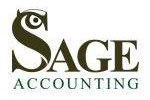Self-employed set for penalty reprieve
Over 1m people missed the 31 January filing deadline last week and will shortly be receiving automatic £100 penalties as a result. However, HMRC has announced that the penalty won’t be enforced for the self-employed - but only in limited circumstances. Are you eligible?

Penalties for late filing are applied in stages, with the first being a £100 penalty where the tax return is not filed by midnight on 31 January following the end of the relevant tax year, i.e. 31 January 2025 for the 2023/24 year. There are sometimes blanket extensions to the deadline, e.g. during the pandemic, but in other cases a penalty might be waived if the taxpayer has a “reasonable” excuse.
There is good news for sole traders and partnerships for 2023/24 due to the disruption caused by basis period reform. In its latest Stakeholder Digest, HMRC has announced that where such taxpayers requested an overlap relief figure from HMRC before 31 January but did not receive a response by that date, an extension to 28 February will apply. It is not clear from the announcement whether this extension will apply automatically, or whether those affected will need to appeal using a reasonable excuse argument.
The Digest also advises filing the return using estimated figures in the meantime and amending later on. This will allow an estimate of the tax to be paid. Don’t forget, interest will always be added to late-paid tax, even where a late filing penalty is waived.
Related Topics
-
Directors’ fees - can you escape PAYE?
You’ve been asked to join the board of a company in a purely advisory role. For tax and NI efficiency you want your fees to be paid to your own company. Does this arrangement fall foul of HMRC’s off-payroll rules?
-
P46 (car) deadline
-
Filing deadline for self-assessment tax returns

 This website uses both its own and third-party cookies to analyze our services and navigation on our website in order to improve its contents (analytical purposes: measure visits and sources of web traffic). The legal basis is the consent of the user, except in the case of basic cookies, which are essential to navigate this website.
This website uses both its own and third-party cookies to analyze our services and navigation on our website in order to improve its contents (analytical purposes: measure visits and sources of web traffic). The legal basis is the consent of the user, except in the case of basic cookies, which are essential to navigate this website.